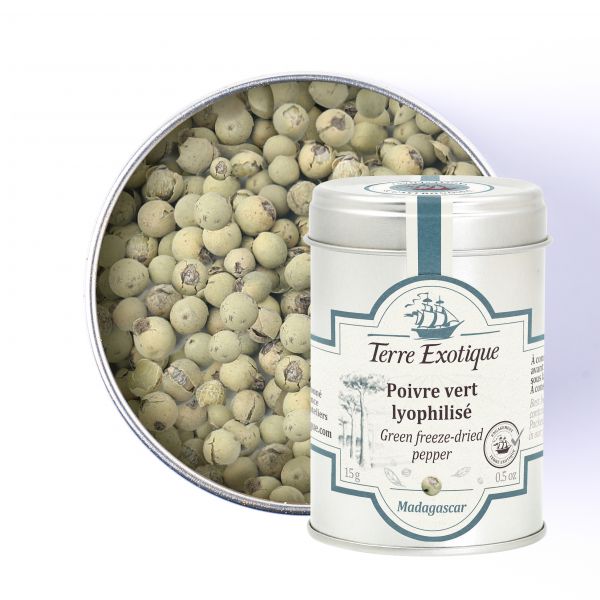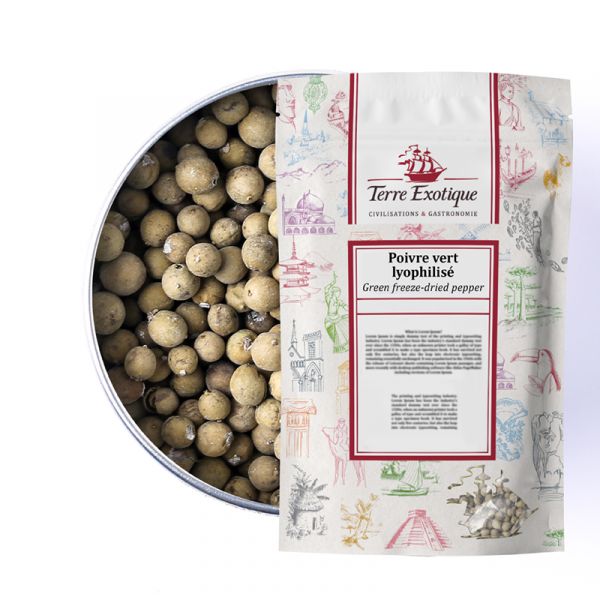



How to use Green freeze-dried pepper in your cooking?
Some suggestions for using Green freeze-dried pepper in your dishes
Green freeze-dried pepper is the ideal pepper to add an exotic touch to your savory dishes. It pairs wonderfully with all kinds of meats, especially poultry. This pepper delicately enhances your sauces and marinades and fits perfectly in exotic preparations. Green freeze-dried pepper can also be combined with vegetables.
How to rehydrate Green freeze-dried pepper?
Our tip: soak this pepper in warm water or a sauce for 30 minutes before using it. The pepper will be rehydrated and regain its authentic fresh green pepper taste.
The flavors of Green freeze-dried pepper
Green freeze-dried pepper is slightly salty, a result of the brining phase. In the mouth, it is slightly less spicy than black pepper and has lemony notes. It's a highly aromatic and refreshing pepper that's worth trying!
Green freeze-dried pepper and its botany
How is Green freeze-dried pepper made?
Green freeze-dried pepper originates from Madagascar. This perfectly round and wrinkle-free green pepper is harvested before reaching maturity. The fresh grains of green pepper are placed in brine (a mixture of water and salt) in Madagascar and then transported to Europe for freeze-drying (dehydration and freezing under vacuum).
This process sets it apart from dehydrated green pepper, which is placed in a very high-temperature oven just after harvesting.
Botanical origin of Green freeze-dried pepper
Green freeze-dried pepper belongs to the Piper nigrum family, a vine that grows on a support and can reach a height of up to 4 meters. Green pepper is harvested before maturity, giving it fresh and lemony notes. It is then preserved in freeze-dried form like this one, or dehydrated or brined.
Like all Piper nigrum varieties, this pepper requires a tropical climate with high temperatures and humidity.
History of Green freeze-dried pepper from Madagascar
At the origins of Green freeze-dried pepper
Frenchman Émile Prudhomme introduced pepper cultivation to Madagascar in the early 20th century after a mission to Java. As the Director of the National Institute of Colonial Agronomy, he wrote in 1899, "Serious attempts to cultivate the pepper vine in Madagascar have not yet been made, but there is reason to believe in the success of this vine along most of the East Coast."
It was initially introduced on Nosy-Be, an island off the northwest coast of Madagascar, before gradually expanding in the Sambirano region of Madagascar.
| Allergen | Absence |
|---|---|
| Native country | MADAGASCAR |
| Genus and botanical species | Piper nigrum |
| Ingredients | green pepper (freeze dried) |
| TRACES EVENTUELLES D'ALLERGÈNES | céleri, sésame, moutarde, fruits à coques. |
 Français
Français 



